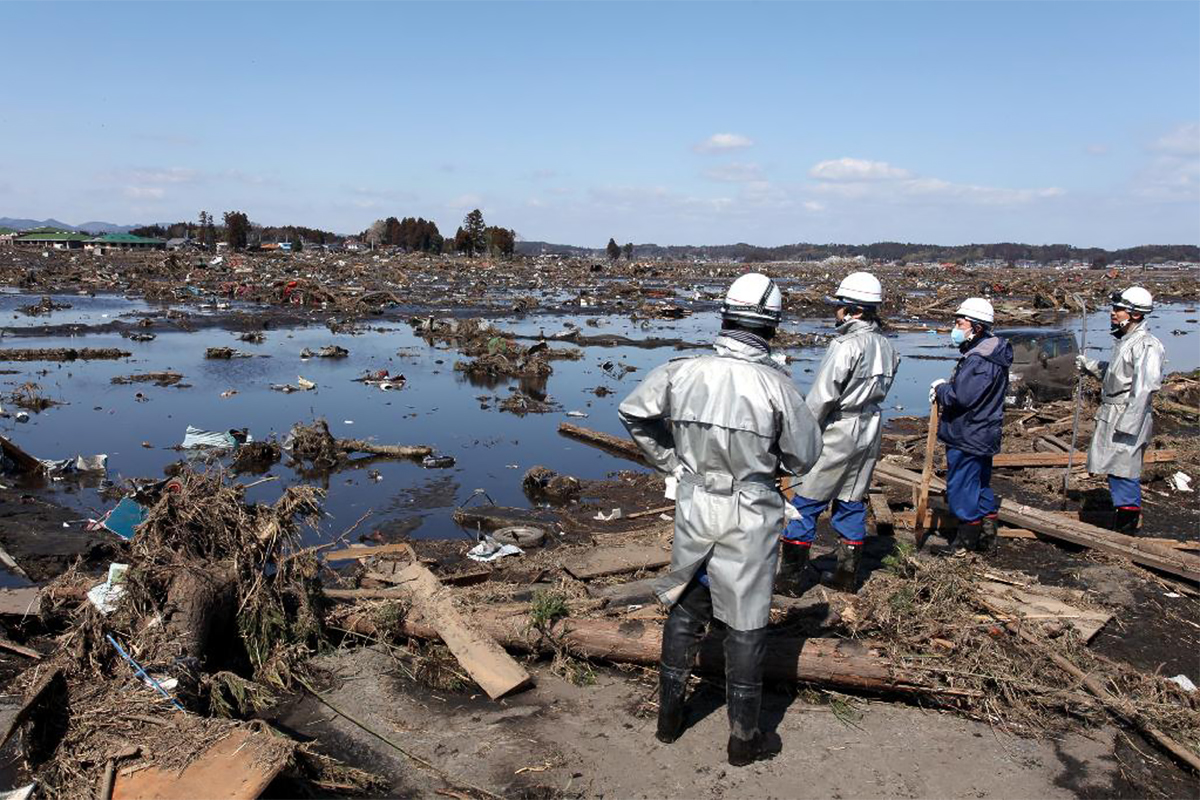

But energy companies sued the government for damages. Three months later, the German parliament voted to phase out atomic energy by the end of 2022. It was a political first for the anti-nuclear party, and in a conservative state, no less. Merkel's close ally and a big supporter of atomic energy, Stefan Mappus, lost as the incumbent state premier in Baden-Württemberg to Winfried Kretschmann of the Green party. In only a matter of weeks, the political momentum unleashed by Fukushima became palpable. In 2011, Merkel and Environment Minister Norbert Röttgen negotiated the nuclear phaseout Image: dapdīut Fukushima changed her mind: Three days after the disaster, a subdued Merkel announced that Germany would be suspending its recently approved extension of the operating lives of nuclear power plants following the "unimaginable catastrophe" in Japan.

"I will always consider it absurd to shut down technologically safe nuclear power plants that don't emit CO2," she said in 2006. She had even attacked the center-left coalition government of her predecessor, Gerhard Schröder, for deciding to phase out atomic power. They included Angela Merkel, a trained physicist who believed in the peaceful use of nuclear energy. That difference is one that has made even avid supporters of nuclear energy second-guess themselves. It was the worst nuclear disaster since Chernobyl in 1986.īut the important difference between the two disasters is Japan's reputation as a high-tech country with high security standards. The gigantic waves rolled over the Fukushima Daiichi Nuclear Power Plant, knocking out the cooling system and causing a meltdown in three of its six reactors. IAEA Bulletin.On March 11, 2011, one of the most powerful earthquakes ever recorded triggered a tsunami off Japan's Pacific coast. “Ensuring the Safety of Nuclear Installations: Lessons Learned from the Fukushima Daiichi Accident.” March. “One lesson of the Fukushima nuclear meltdown is that Japan’s culture needs to change.” March 10.

Anatomy of the Yoshida Testimony: The Fukushima Nuclear Crisis as seen through the Yoshida Hearings. Rebuild Japan Initiative Foundation, U.S.-Japan Strategic Vision Program. “Independent Investigation Commission on the Fukushima Nuclear Accident.” February 20. Nuclear Regulatory Commission Regulatory and Cost Benefit Analysis Guidance.” “Enforcement of the New Regulatory Requirements for Commercial Nuclear Power Reactors.” July 8. “Proportion of elderly people high in Fukushima areas after lifting of evacuation orders.” March 12. “Safety costs at nuclear plants in Japan exceed 6 trillion Yen.” March 9. “Fukushima in review: A complex disaster, a disastrous response.” Bulletin of the Atomic Scientists. 2018.“ Public Trust in Government, Japan.” Global Encyclopedia of Public Administration, Public Policy, and Governance. 2021.“10-year Investigation Commission on the Fukushima Nuclear Accident: Final Report by Investigation Commission on the Fukushima Nuclear Accident.” February 19. 2014.“Independent Investigation Commission on the Fukushima Nuclear Accident.” February 20 Asia Pacific Initiative. “Final Report” July 23 Rebuild Japan Initiative Foundation. Investigation Committee on the Accident at the Fukushima Nuclear Power Stations. Washington, DC: The Brookings Institution Press. Meltdown: Inside the Fukushima Nuclear Crisis. “White Paper: Disaster Management in Japan.” įunabashi, Y. “Backfitting rule on nuclear safety could strain utilities’ finances.” March 17.


 0 kommentar(er)
0 kommentar(er)
